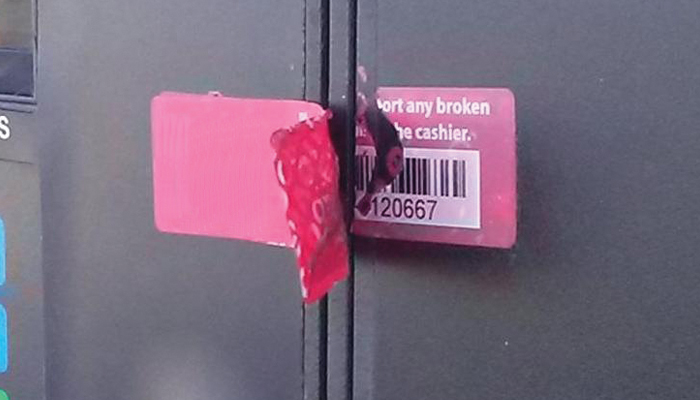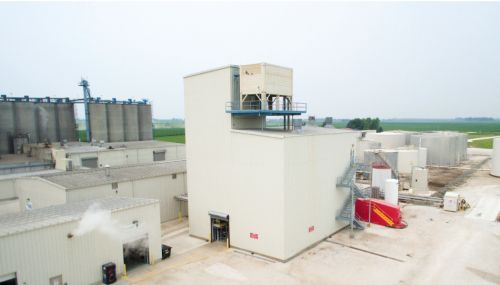All
Credit Card Skimming Is on the Rise

Credit card thieves are increasingly targeting gas station dispensers, and a California-based security company is offering replacement locks that make dispensers more secure and thwart credit card theft.
The gas station credit card scams use “skimming” devices that gather credit card numbers and the associated PINs (personal identification numbers) that customers key in when fueling their vehicles. A thief can open up the credit card door using one master key that might work in many different gas stations and insert the skimming device on the credit card reader without being detected by station management. While the dispenser continues to function normally, the device record transaction details and then transmits the data wirelessly to a thief using Bluetooth technology. A typical skimming device weighs two ounces and is about the size of a Tic Tacs box.
The thieves often use the stolen data to make counterfeit credit cards and debit cards. In the case of debit cards, they have the PIN, so they can drain cash directly from the bank accounts they hack.
An incident of gas dispenser skimming was reported recently in Hingham, MA, and CSPNet.com reports that skimming is occurring with increased frequency in all parts of the country.
False Security
Many gas stations rely on custom-made stickers to protect the dispenser’s integrity. The stickers cover the credit card door (CRIND door) and must be cut or ripped whenever the door is opened. The premise is that a broken sticker is an indication of potential tampering with the dispenser’s credit card reader, and that an employee or a customer will notice a broken sticker and ask questions.
One problem with the stickers is that they are quite easy for a thief to replace: Some generic stickers can easily be ordered online, and other branded versions can be duplicated with a printer.
Relying on stickers to preserve dispenser integrity is risky, due to the relative ease of using counterfeit stickers that closely resemble the originals, according to Frank Minnella, CEO of Lock America Inc. of Corona, CA. “We kind of laugh at the stickers,” he said. “We think it is the biggest joke ever perpetrated. The sticker only tells you that someone has already stolen from you. It doesn’t prevent anyone from stealing credit card information.”
Watson Visuwan, Vice President of Sales and Marketing at Lock America, said he is trying to end the promotion of CRIND door stickers as a line of defense against skimming. “The sticker provides no physical security at all,” he said. “If the station operator does not see a broken sticker, or if a counterfeit sticker is used, they will never even know that a thief has planted a skimmer.”
Visuwan said that a skimming incident can cause customers to stop patronizing a gas station. “It’s hard to keep customers when they find out your location was susceptible to skimming,” he said.
Lock America offers station operators the ability to secure their CRIND doors with specialized replacement locks that can keep thieves out of the dispenser and truly protect customers from credit card theft. The Series 600 High Security Lock System replaces the original lock on a dispenser and provides multiple levels of enhanced security.
Key Controls
Many original dispenser locks are vulnerable to thieves because they use a master locking system that is repeated on dispensers at numerous other locations. If a thief can steal or copy a key from one station, they can use it to unlock dispensers at other stations and install skimmers.
The Series 600 is designed and distributed differently. “What we have done is try to come up with locks and a key control system that cannot be compromised from the outside,” said Minnella.
The lock itself is more robust, because it uses a “rotating detainer disk” cylinder mechanism that resists picking and bump keying. Lock America also distributes its locks with keys that are exclusive to each station, which eliminates the risk of a thief using a master key stolen elsewhere to open the dispenser and plant a skimming device. “If you don’t control the key, the lock is worthless,” Minnella said.
Each location gets its own unique key code with the option of installing a master key system. Lock America maintains a registry of keys it has sold by location and maintains careful controls when fielding requests for replacement keys. The keys are difficult to duplicate, and replacements can only come from Lock America. “If you were to take any of out keys to a typical locksmith, he does not have access to the key blank and does not have the machine to cut it,” Minnella said.
The replacement lock kits come in different styles for different dispensers and are easy to install, Minnella noted. Cost is typically around $17 per dispenser lock.
Lock Specialists
Lock America itself has a long history of thwarting thieves. “We came out of the world of coin-op laundry machines, vending machines, video games and slot machines,” Minnella explained. He learned that manufacturers of vending machines do not want to keep key control records, so they sell lots of machines with identical locks and keys, enabling anyone who can steal a key or duplicate to open machines in many locations. “I started calling on people up and down the East Coast and showing them they I could take a key from Charlotte, NC, and use it to steal all the Coke from a machine anywhere.”
Spotting an opportunity, Minnella began specializing in the dispenser locks themselves with a particular focus on unique key codes, so that his customers could avoid relying on locks that could be opened by widely available keys.
Lock America first began upgrading locks on gas dispensers to prevent theft of product by employees. Only recently has credit card skimming emerged as a widespread threat.
And while skimming is now a major focus for Lock America, the company advocates that gas station owners change the locks on al their dispenser panels. “We go into it with the idea that you are going to change all the locks and have proprietary keys so that only your locations has keys to all the locks at that location.”
Related Posts
 Why Quality Matters in Your Biofuel Blends
Why Quality Matters in Your Biofuel Blends
Posted on June 25, 2025
 HEAT Show Gears Up
HEAT Show Gears Up
Posted on June 25, 2025
 What’s Next in Boiler Technology
What’s Next in Boiler Technology
Posted on June 25, 2025
 How Intelligent Are Your Integrated Customer Platforms?
How Intelligent Are Your Integrated Customer Platforms?
Posted on June 25, 2025
Enter your email to receive important news and article updates.
